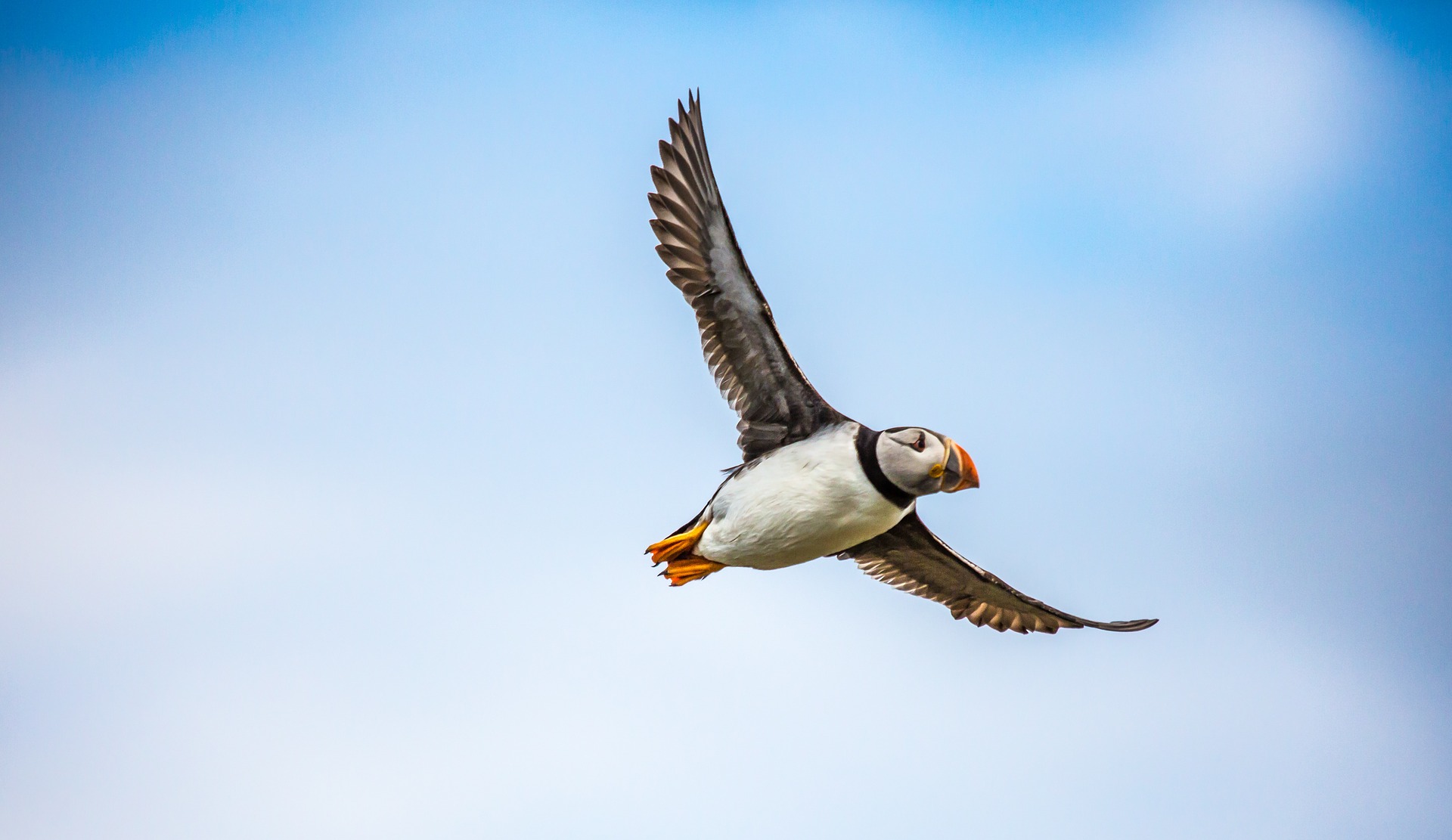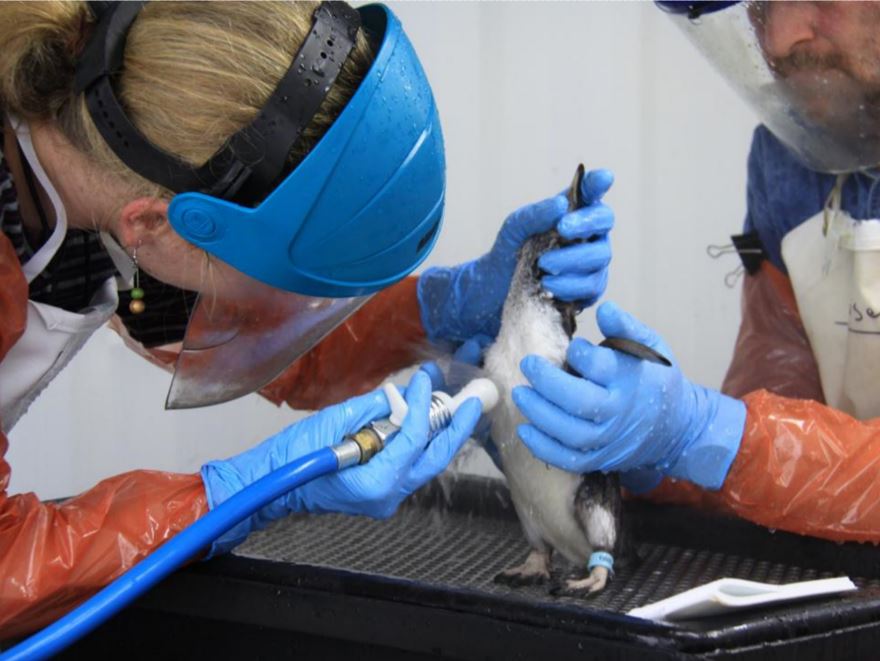GOWRS Partner Interview - Episode 1: Aiuka
In our mission to create a global oiled wildlife supplementary tier 3 service, we’re interviewing the incredible organisations that will be a part of that service. In this first instalment, Paul Kelway, OSRL's Wildlife Response and Preparedness Manager, interviews Valeria Ruppolo of Aiuka, a Brazilian organisation with national and international experience in planning, rescuing, and rehabilitating fauna affected by oil spills.
If you wish to watch the video of this interview, you can view it here.
Listen to the Interview with Aiuka
Transcript
Paul: Hello this is Paul Kelway, the Wildlife Preparedness and Response Manager at Oil Spill Response Ltd. As part of our five-year Strategic Plan for Wildlife Emergency Preparedness and Response, we are aiming to improve response capability in collaboration with the network of leading wildlife response organisations that have all been participating in a multi -year project with the Global or Wildlife Response System or GOWRS project. The intention is to set up a global or wildlife response service – a guaranteed four-person wildlife assessment team as a supplementary Tier 3 service through OSRL. To raise awareness of the incredible organisations that have been collaborating on this and will be part of that service, I will be hosting monthly conversations we with each of the network partners and to launch this, I'm delighted to welcome Valeria Ruoppolo, the Director of Aiuká in Brazil. Valeria is a wildlife veterinarian with a master’s degree and PhD in Comparative Pathology. She is an experienced oiled wildlife rehabilitator and has been a key member of the management team in oil spill responses all over the world.
Paul: Valeria, thanks so much for speaking with me today.
Valeria: Thank you very much, Paul, for the invitation. It's great to be here. Thank you.
Paul: Great, so maybe let's begin by me asking you to briefly describe Aiuká as an organisation. What is your mission and where and how do you carry out your work?
Valeria: So are you guys based in Brazil and we worked out of two main locations in San Paolo and Rio states. We work with port authorities and the oil industry and trustees through managing, planning and training to better prepare to respond to emergencies affecting wildlife. Our mission is to offer services for planning, management, training and response to wildlife in need. And we provide a qualified team with technical excellence and highly developed skills to apply these best practices for both the welfare of the individuals and also for species conservation.
Paul: So there must be some really good examples of the kind of work that Aiuká has done that perhaps illustrate what your mission is? So is there a particular story that comes to mind that you could share of the work that you've done?
Valeria: One response or one fact that comes to mind that we were called in due to our expertise and not necessarily the work that had to be done? So in 2019 Brazil had a big incident with a dam rupture, inland Brazil. So originally, we worked with marine species and on the coast, but with the fact that this incident happened inland Brazil and it affected mostly domestic species, Aiuká was called in to work in that response by our expertise for managing animal responses and not necessarily being an oil spill, so I think that the fact that we do have crisis management response training just gave us a whole opportunity to work and help these animals with this huge response that we've been working on that to this day. We've been two years in that response. It became a project, but to me the most emblematic thing is that we were called into work and helped these animals because we were trained in Animal Response Management. Basically so I think it’s really important to us that our experience gives us new opportunities and not only focus on wildlife, oiled wildlife response, that's what I mean.
Paul: So you have to have the flexibility to apply those emergency principles in different scenarios. So it's your experience with oiled wildlife enabled you to help in this instance, and like why is probably you learned things in this instance that you then can take back into other parts of your work.
Valeria: Yeah, they were going to bring in a whole new package, let's say of lessons learned into oiled wildlife response on the coast.
Paul: So what are the types of specialties that you have within your team to be able to carry out these different responses?
Valeria: So our main line of work, as I say it is oiled wildlife response and the oil production and transport in Brazil mainly works offshore so we do work with a lot of ports in an onshore facilities, but the fact that we need to go offshore and respond offshore most of the time, it gives us a whole different skill set that we need to have to be able to be on the same safety standards as the oil industry out there. So we need to have underwater escape training, we need to have basic safety training for platforms and all of our team is trained on ICS, which is what's demanded here by the authorities in Brazil for oil spill response. So our team not only works out in the field but also is trained to work within the command post depending on the situation.
Paul: Plus all that work in Brazil, Aiuká has also been a partner in this multi-year Global Oiled Wildlife Response System project since the beginning. So from your perspective, having been involved in that and I should say you are the Vice Chair of the GOWRS Steering Group as well at the moment, what do you see is one of the most significant outcomes of that project, that initiative?
Valeria: It's been really interesting to get to know all the different organisations and the project has been going for quite a few years now and we have been understanding how the different organisations work, but the product that was written for the IPIECA guidelines, the documents that were produced in 2014 and then 2017. I think the internationally agreed protocols are really a big step forward and a big symbol of our project. I really like the products that were developed for best practices.
Paul: Great point and they are great resource is you know that are freely available. So yeah, very well said. So we're now in a position where we're hoping to transition this from a project to an actual live service to a supplementary service Tier 3 assessment team. So what do you see is the sort of the real value of that service? Why is it so important for wildlife response preparedness?
Valeria: Having a global reach, I believe is a great step forward for our field and the fact that the companies will have readily available and better preparedness for wildlife response is a big step forward and we obviously do need the buy-in from the industry representatives because they need to implement and develop the culture within their own companies. But it will help them too. The fact that they have ready advice and prompt advice from our groups, it will help with proper planning and development of local Tier 1 and Tier 2 globally and that attached to all the company's activities independently of where they are based. So I think it's a great step forward.
Paul: So providing a sort of very genuine additional service, but also that service helping to drive further in country preparedness as well. Great. What about for Aiuká as an organisation? What would it mean for your work and for you as an organisation if this became a live service?
Valeria: So we will have dedicated people to international response. We are already a Tier 3 responder in association with other organisations like International Bird Rescue. But today we don't have dedicated people for international response, and I think that's a good way forward and it will improve our capability outside of not only Brazil but also outside of South America. And I think that also a great development for Aiuká is the fact that we will keep implementing world’s best practices as they are evolving around the world back into our own organisation, and I think that's very significant for us.
Paul: It's a great point, thank you. Well finally our next featured GOWRS partner in our interview series will be Focused Wildlife based in the US and Canada. So just to finish off, can you say something that you admire, particularly about them as an organisation?
Valeria: I enjoy working with people from Focus and I think that we evolved as organisations more or less at the same time and they came up first before Aiuká did, but we have worked in different situations together and with the whole wide of different species, from penguins to swans, to eiders, and so going from South all the way to the North. And I always working with Focus wildlife. I have this sense of working collaborative and being part of a team so I really enjoy working with them because we feel comfortable working together and so yeah, that's what I enjoy about Focus.
Paul: Great, thank you. Well, I look forward to talking with them next time, but for now for Valeria, thanks so much for taking the time to speak with me today. And yeah, wishing you all the best.
Valeria: Thank you very much Paul. It's been a pleasure, so thank you for the invitation.
Paul: You're welcome. Bye for now.
Valeria: Bye.
Learn more about Aiuka here.
Wildlife Response Services
Find out more about our Wildlife Emergency Preparedness & Response Services








